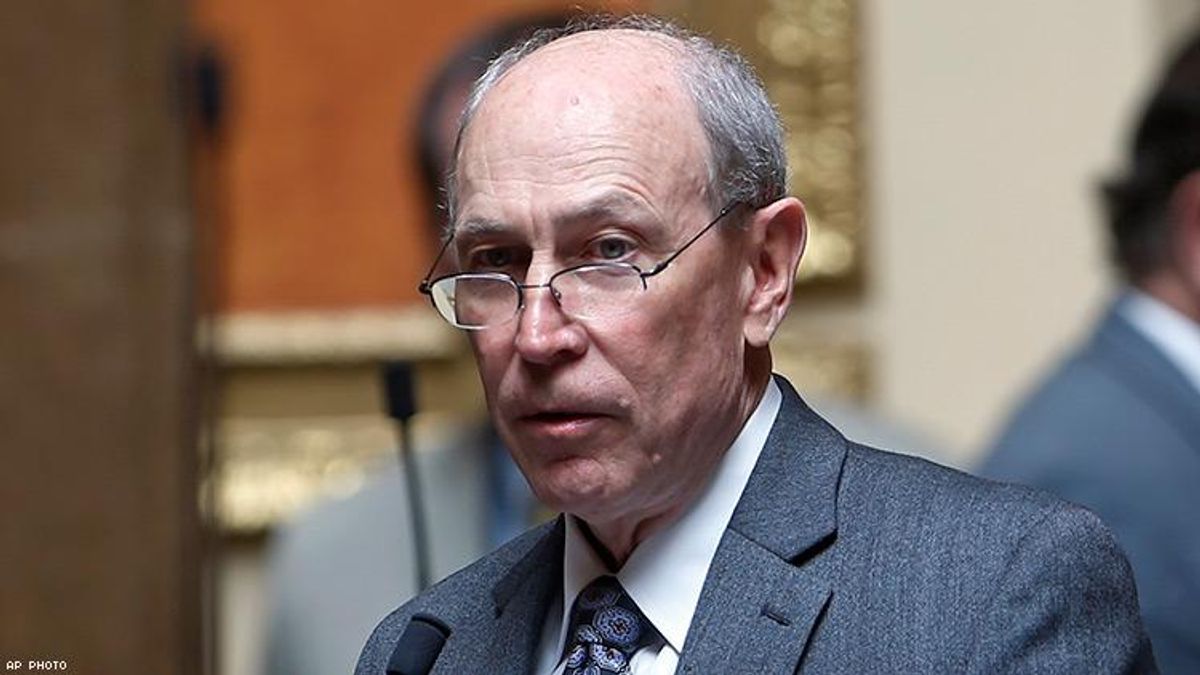News & Opinion
Utah Lawmakers Target Trans People With Birth Certificate Bill

The process is already difficult. House Bill 153 would make it even harder, if not outright impossible.
January 29 2019 7:11 AM EST
November 04 2024 10:01 AM EST
By continuing to use our site, you agree to our Private Policy and Terms of Use.

The process is already difficult. House Bill 153 would make it even harder, if not outright impossible.
Utah lawmakers have proposed a bill that would make it even more difficult, if not outright impossible, for trans people born in the state to change the sex listed on their birth certificates.
House Bill 153 aims to "[amend] provisions regarding the completion and amendment of a birth certificate," i.e., alter the way you go about changing the sex listed on your birth certificate after your parents and a medical professional have signed off on it.
The bill, known as the Utah Vital Statistics Act, would make it so that you'd need to submit an application to the state registrar that includes a certified copy of a court order for a gender marker change, which the state registrar can deny, local CBS affiliate KUTV 2Newsreported last week. The current process is a whole lot easier than what HB 153 proposes, especially if you live out of state; you just need approval from any court in the U.S. or Canada.
Merrill Nelson, a Republican state representative from Utah's 68th district who co-sponsored the bill along with Utah Senate Majority Leader Ralph Okerlund, claims that HB153 is not part of some anti-trans agenda.
"This bill is not motivated by any form of 'phobia' or hate," Nelson toldThe Salt Lake Tribune, "but only by a desire to maintain the integrity of the birth certificate and to provide clarity and consistency to an otherwise ambiguous statute that has produced conflicting results."
"A person's sex is no more subject to change than a person's age. While some may feel younger or look younger, that would not justify a change of the person's actual date of birth," he said.
As American Civil Liberties Union attorney Chase Strangio noted on Twitter, the bill doesn't just target trans people -- it targets everyone by codifying strict definitions of "female" and "male" that reduce people down to their reproductive potential, ignoring the full breadth and diversity of intersexual variation in the process.
Under HB 153, "male" would mean "an individual with testes who is confirmed before or at birth to have external anatomical characteristics that appear to have the purpose of performing the natural reproductive function of providing and delivering sperm to a female recipient."
Female, meanwhile, would mean "an individual with ovaries who is confirmed before or at birth to have external anatomical characteristics that appear to have the purpose of performing the natural reproductive function of providing eggs and receiving sperm from a male donor."
That's it. That's all men and women would be under Utah state law, if HB 153 passes.
"Hey cis women," tweeted Strangio, "is this how you want to be defined by law? Just curious because this is how anti-trans bill language reads."
RELATED | South Dakota Lawmakers Kill Bill Targeting Trans Student Athletes
Beware of the Straightors: 'The Traitors' bros vs. the women and gays